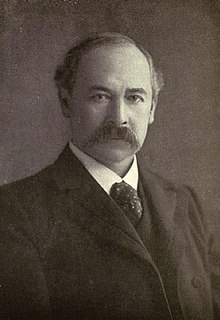A Quote by Dale Carnegie
Any fool can criticize, condemn and complain - and most fools do. But it takes character and self control to be understanding and forgiving.
Related Quotes
When dealing with people, let us remember that we are not dealing with creatures of logic. We are dealing with creatures of emotion, creatures bristling with prejudices and motivated by pride and vanity. ...Any fool can criticize, condemn, and complain - and most fools do. But it takes character and self-control to be understanding and forgiving.
Bitter criticism caused the sensitive Thomas Hardy, one of the finest novelists ever to enrich English literature, to give up forever the writing of fiction. Criticism drove Thomas Chatterton, the English poet, to suicide. . . . Any fool can criticize, condemn and complain - and most fools do. But it takes character and self-control to be understanding and forgiving.
Ordinary fools are all right; you can talk to them, and try to help them out. But pompous fools-guys who are fools and are covering it all over and impressing people as to how wonderful they are with all this hocus pocus-THAT, I CANNOT STAND! An ordinary fool isn't a faker; an honest fool is all right. But a dishonest fool is terrible!
I often had no scruples about deceiving nitwits and scoundrels and fools when I found it necessary. ...We avenge intelligence when we deceive a fool, and... deceiving a fool is an exploit worthy of an intelligent man. What has infused my very blood with an unconquerable hatred of the whole tribe of fools from the day of my birth is that I become a fool myself when I am in their company.
Don't criticize, condemn or complain. Constantly criticizing, condemning and complaining is what breaks most relationships. Instead of criticizing and condemning, figure out how you can solve the problem together. Instead of focusing on blaming the other person for what they did wrong, focus on how you can avoid the problem next time.
Considering how many fools can calculate, it is surprising that it should be thought either a difficult or a tedious task for any other fool to learn how to master the same tricks... Being myself a remarkably stupid fellow, I have had to unteach myself the difficulties, and now beg to present to my fellow fools the parts that are not hard. Master these thoroughly, and the rest will follow. What one fool can do, another can.
Holding onto and manipulating physical objects is one of the things we learn earliest and do the most. It should not be surprising that object control is the basis of one of the five most fundamental metaphors for our inner life. To control objects, we must learn to control our bodies. We learn both forms of control together. Self-control and object control are inseparable experiences from earliest childhood. It is no surprise that we should have as a metaphor-a primary metaphor-Self Control is Object Control.































